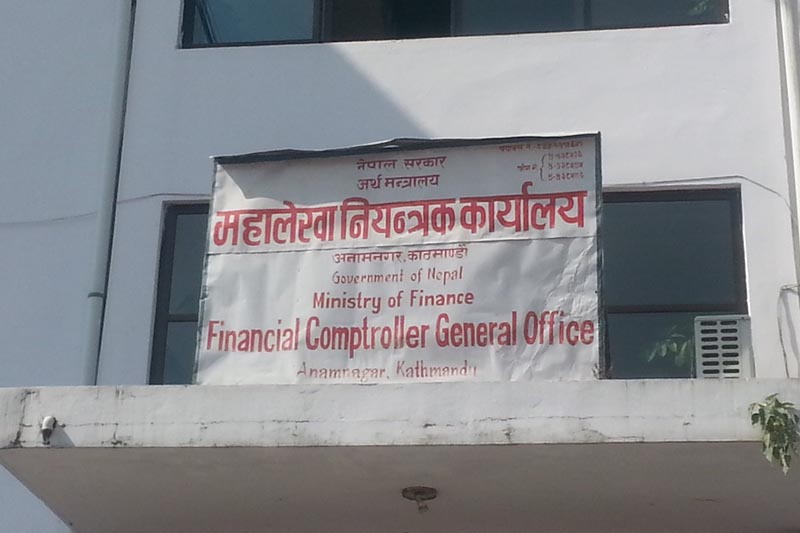Govt expenses less than revenue collection
Kathmandu, October 25
The government’s expenditure in the first quarter of the current fiscal was less than the revenue collection. Inability to spend even the revenue that was collected has provided a cushion of the budget surplus to the government.
As per the Financial Comptroller General Office, the government spent Rs 193.71 billion in the first quarter (mid-July to mid-October) of this year, whereas revenue collection stood at Rs 197.87 billion exceeding the target of Rs 191.62 billion in the review period.
The government has spent a large chunk — Rs 173.82 billion — under the recurrent heading, which is 20.6 per cent of the earmarked budget. Recurrent expenses include salaries and perks of civil servants and grants to sub-national governments and universities, among others.
However, capital expenditure was disappointing with only Rs 17.29 billion spent, which is 5.5 per cent of the allocated budget worth Rs 313.99 billion for this fiscal. Likewise, the government spent Rs 2.6 billion or 1.67 per cent of the annual allocation under financing heading, which is utilised for debt servicing and investing in state-owned enterprises.
Revenue Secretary Shishir Kumar Dhungana said capital expenditure remained slow in the first quarter as projects needed to call for bids, award tenders and sign contracts. Besides, expenses in the first quarter are mainly done by projects that are awarded multi-year contracts.
The finance ministry uses revenue, foreign grants and loans, and domestic borrowing as sources of financing and low government expenses in the first quarter have put pressure on the government to enhance spending capacity in development works.
Another reason for the budget surplus in the first quarter is the cautionary approach taken by the federal government while transferring grants to the sub-national governments.
Due to fund crunch faced by the federal government in the last fiscal, the budget this year has provisioned transfer of equalisation grants based on expenses in every quarter following the transfer of one-fourth of the grant at the beginning of the fiscal. The schedule for transfer of equalisation grants is August 10, October 19, January 16 and April 16 and if the provincial government cannot spend the transferred grant at the beginning of the fiscal, the federal government does not have an obligation to transfer funds this fiscal. On the other hand, there is a provision for adjusting the unspent conditional, matching fund and special grants of the previous fiscal in grant transfer of the current fiscal.
The government’s slow capital expenditure has had an adverse impact on the economy. The financial sector has been witnessing a situation of credit crunch due to lack of capital expenditure by the government, which is the source of deposits for banks and financial institutions. Slow loan growth from BFIs affects the expansion of private investment, triggers lending rates and ultimately hurts overall expansion of the economy.
READ ALSO:






